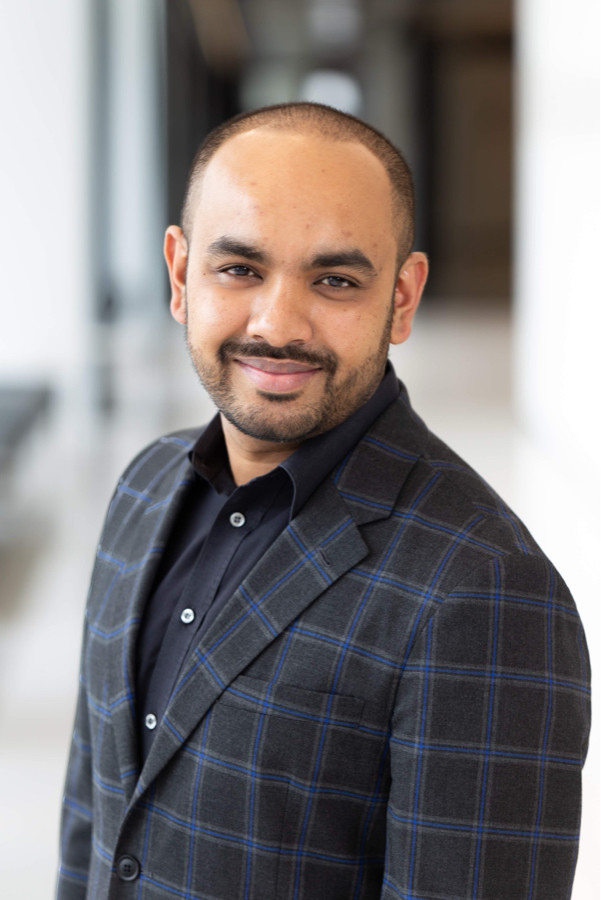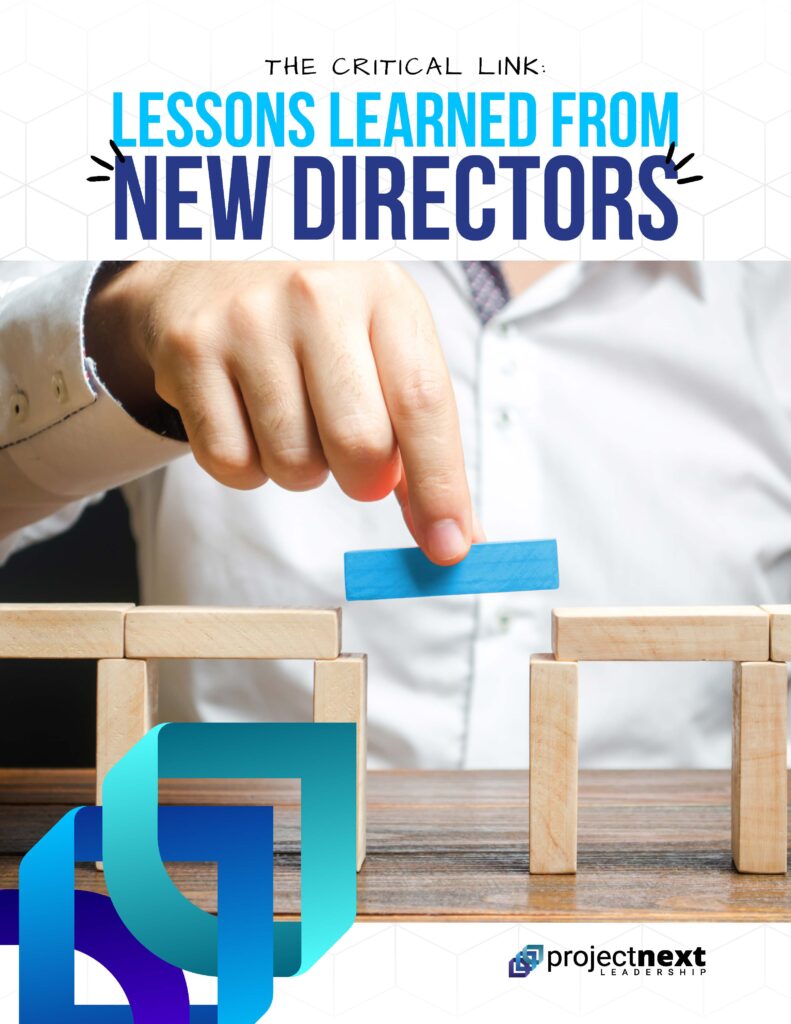In today’s constantly evolving world, human connections are often what distinguish successful leaders from the rest. Jeff Rosenthal, co-CEO of ProjectNext, recently had the opportunity to connect with Ainul Huda, the new SVP of Consumer Growth & Product Marketing at Condé Nast, whose diverse experiences, and values-driven approach offer a wealth of insights for today’s senior and emerging leaders. Ainul is a highly respected leader in the organization, known for being effective in working across all parts and levels of the company.
Jeff: Ainul, it’s great to see you. Why don’t you tell us a bit about your journey of how you got to where you are today.
Ainul: My career has been nonlinear and very driven by curiosity. If you had told a young Ainul that I’d be working for Condé Nast, for Anna Wintour, with a bunch of creatives, I would have said “Are you serious?!” Where I’ve ended up is very surprising to me, from a location, industry, and even a culture perspective, and not what I would have guessed I’d be doing as a young kid.
I’ll start with where I’m from because it’s important. I come from a small town in Assam, in the northeast of India. Assam is a small community, mostly known for its tea and one-horned rhinos. Going from Assam to Delhi or Mumbai is a big deal. But going from Assam to London or New York (where I am now) – that surprised my friends and family.
I also grew up as a very technical guy. I started my career as a data engineer, right out of school, working for a few years in India and London for big consulting firms. After moving to the US for my MBA (University of Rochester, NY), I worked in marketing and finance analytics at Verizon Media, eventually leading sizable teams and budgets in performance marketing and audience development. I had a stint at WeWork for a year and a half, where I ran and built their data and analytics team to drive revenue-based decisioning across marketing, product, and sales. Ten years ago, I probably would’ve said I’d end up in FinTech or in another technical role at a company like Verizon…not at one of the world’s most renowned media companies with brands like The New Yorker, Vogue, Vanity Fair, Wired, Bon Appétit, Condé Nast Traveller and Architectural Digest.
However, the opportunity to join Condé Nast as the Global Head of Audience Development and Analytics, where my focus was to help inform content strategy and grow audiences, really brought all my experiences together in an unexpected but exciting way.
It was a role where I could bring my technical skill set on how to think about KPIs and their corresponding systems, while also mastering how to best work with people to meet those goals. This led to running a pretty sizable team at Condé, where I realized that above all else, to get big things done, learning how to partner with people across the organization is what mattered the most.

Jeff: Going back a bit, what’s one thing from your early life that has shaped how you work, how you think, how you lead?
Ainul: I think a lot had to do with my formative years going to a boarding school (The Assam Valley School). Going from an environment where I lived with my parents to an environment where I lived eight to nine months out of the year with my friends, shaped my worldviews, how I interact, how I operate and how I think about other people’s challenges. By knowing that you’re not in an environment with your parents or family who can support you and give you the necessary life context, you must figure out your own context. Not only did this experience broaden my worldview, but it also allowed me to discover a lot about myself – my strengths, my weaknesses, and what it took to be accepted by my peers. I’ll also say that my time in boarding school helped me have a more balanced, well-rounded approach to life. This was especially important in the context of growing up in India, where typically, the success of your kids is measured on their test scores and grades. I was encouraged to play sports, have hobbies, and contribute to the broader community, which helped me think about aspects of life that are more important than grades and test scores. My teachers and headmasters pushed me to think critically, have my own opinion, and go beyond the technical to think more holistically about a concept from a people perspective.
Jeff: Your comment about being well-rounded really strikes me. I was looking at your LinkedIn endorsements and you have a lot, which is not surprising. But, one of the things that comes up over and over again is that the comments from your colleagues are multi-dimensional, such as “Ainul cares about results, but he really cares about people.”
Ainul: Well, I’ve had a lot of “crash-and-burns,” which has helped me learn a ton and shaped how I lead today. For example, I remember one time when I took over leading an existing team. I went to the team and said, “Here’s the plan, here’s how we should do it, that’s that.” The team immediately reacted and was upset because they hadn’t been involved in the process, and therefore didn’t believe in it. So, I went back to them and asked “Well, what would you believe in?” and they came back to me and said, “If you’re asking us, it means you don’t have a plan.” I couldn’t win!
At a pretty early point in my career, it forced me to take a step back and realize that it’s not necessarily about pushing “my plan” or giving in and going with “your plan” but how we can come together to create a cohesive plan. I went back to the team and said “These are our goals, here is where I think we should be at the end of this, here are some of the trends we are seeing. I don’t have all the answers, so why don’t we work on it together?” It completely shifted the dynamic and the outcomes.
Jeff: Let’s talk about the role you’re coming into. Tell us a little more about how you’re thinking about it.
Ainul: My new role as the SVP of Global Consumer Growth and Product Marketing is about helping Condé meet its ambition around the consumer. Basically, how can we take the audiences we’ve grown and monetize them in new ways? It’s a pretty big ambition because of all the shifts and risks we’ve seen in the publishing industry. This industry is changing at a rate I’ve never seen before and so we are grappling with how to chart an unknown future. How can we create products and value propositions for our brands that haven’t been thought of before? How can we bring the best-in-class solutions, while simultaneously thinking about our entire customer ecosystem? How can we do this profitably and sustainably? I’m definitely excited, but also nervous, in a good way, because it won’t be easy. But that’s how I knew this would be a role that I’d be passionate about. If I thought the role would be easy, then what’s the point?
Jeff: It feels like not only a challenging role, but a really important role. My sense is that if publishing companies like Condé Nast don’t evolve, it’s going to be hard to thrive in the future. What is it about you as a leader that makes the organization think you are the right one to take this on?
Ainul: That’s hard for me to say, but If I were to guess, I would say it probably comes down to two components. The first component effectively boils down to the craft – does this person have the combined skill set of data analytics, content, product growth mindset and marketing strategy, combined with the operational rigor to be able to deliver on those? The second component, which I think is even more important, is can this person effectively work with and influence teams and stakeholders cross-functionally? A big shift in this role is that I’ll be going from having a pretty sizable team with direct lines of authority to a role where I’ll have to drive impact for the organization through teams who don’t report to me at all. I’ll also be reporting into multiple executive leaders – all of whom run different parts of the business and have differing needs and priorities. It really becomes about how do you bring all those worlds together to create a shared perspective, while building an ecosystem of co-creation to help everyone move beyond their immediate short-term goals to think about the long-term sustainable growth of the organization. At its core, it’s lateral agility and I think I’ve built the trust across the organization to do that.
Jeff: I’d love to dig in around lateral agility, which we sometimes call leading across the enterprise. Your definition of bringing the worlds together is a good way to think about it. How do you go about it?
Ainul: The way I think about lateral agility is about driving a common outcome and having a shared perspective, which I think first starts with some form of humility. You need to know and be comfortable with the fact that not everything is going to work out exactly. You also must have the humility to intellectually understand that there will be areas where you don’t have complete expertise and you will have to lean on other people. Then, it’s about understanding and appreciating other people’s incentives and constraints. I’m always asking myself “What are this individual or this team’s goals and their constraints?” which helps me to connect and get quickly aligned more easily. And finally, to be truly laterally agile, you have to know the organization at a deep level so that you can navigate it and operationalize what you are trying to do. Having this knowledge is going to enable you to co-create so much more easily with your partners across the organization. It takes time to both gain this knowledge and co-create, so there is a trade-off between efficiency and collaboration. However, that time spent is well worth it for any leader who wants to have an impact in their organization.
Jeff: What advice would you give to younger people entering the workforce who want to make an impact?
Ainul:
- Start with being a good listener, a voracious reader and very curious.
- Learn to be empathetic. Having empathy is easier said than done. If life experiences haven’t taught you empathy yet, work on it. Do that by meeting people outside your immediate circle. Knowing and being friends with folks who come from different backgrounds and walks of life is key.
- Learn to take feedback well, in a constructive manner. My mentors taught me that when somebody gives you feedback, there’s only one right answer, which is “Yes. Tell me more. “
- Know that in life, reputation matters. I’m not saying you should spend hours creating content on LinkedIn or TikTok. That’s not what I mean. Be honest, nice, full of integrity and be someone that people want to work with.
- Know that there are times as a leader when it’s almost like being a captain of a sports team. Many times, you will need to lead from the front. But there are also times when leading means stepping back and letting somebody else take charge.
Ainul’s path has been shaped by an unwavering sense of curiosity and a deep commitment to understanding and connecting with others. His approachable leadership style, emphasizing humility, empathy, and the importance of listening and learning, sets a powerful example for all aspiring professionals. Ainul’s story reminds us that success is not just about the results we achieve but also about the people we impact along the way. As he steps into his new role, Ainul’s focus on building meaningful relationships and driving innovation promises an exciting future for Condé Nast, demonstrating that great leaders are those who never stop growing, both personally and professionally. Thank you, Ainul, for connecting with us!


